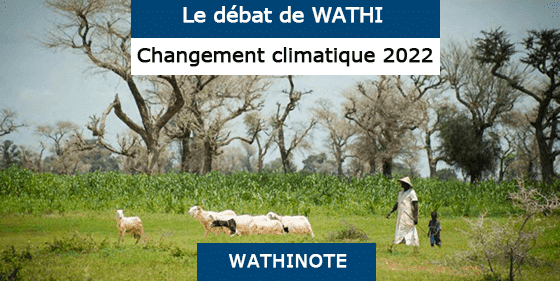

Author : Robert Muggah
Affiliated organization : Foreign Policy (FP)
Site of publication : foreignpolicy.com
Type of publication : Article
Date of publication : 18, February 2021
West Africa’s Sahel—the vast zone of semi-arid grasslands that lies south of the Sahara Desert—was affected by climate change more than most regions, with temperatures rising 1.5 times the international average. Scenarios developed by the Intergovernmental Panel on Climate Change suggest that temperatures could climb up to 6 degrees Celsius by the end of the century. Social scientists describe climate change as a “threat multiplier” because of how it exacerbates the risk factors that already give rise to instability.
In countries already impacted by searing inequalities, fast-growing and youthful populations, overreliance on agriculture, serious corruption, and weak governance, the risks of climate change triggering the onset, escalation, and resurgence of armed conflict are especially high.
While intensely debated by climate scientists, the complex relationships among rising temperatures, ecosystem resilience, seasonal rainfall variability, changes to arable land, shifting livestock grazing, and violence are increasingly hard to ignore. West Africa’s coastal populations face especially worrying risks from climate change.
The relocation of populations is generating pressure on cities and villages with limited capacities to service new arrivals. The economic burden of environmental degradation in four countries (Benin, Ivory Coast, Senegal and Togo) totaled $3.8 billion, or 5.3 percent of their combined GDP, in 2017 alone.
Due to a combination of climate impacts and severe overfishing—including from Chinese and European trawlers—the maximum catch potential for fish could decline by 30 percent or more in the Gulf of Guinea, a region where around 4.8 million people rely on fishing to sustain their livelihoods. Senegalese fishermen are increasingly crossing the border to Mauritania to fish, which has led to violent exchanges with the Mauritanian coast guard.
In countries already impacted by searing inequalities, fast-growing and youthful populations, overreliance on agriculture, serious corruption, and weak governance, the risks of climate change triggering the onset, escalation, and resurgence of armed conflict are especially high
Climate change is also accelerating migration and displacement in West Africa, especially in the Sahel. Today, roughly 25 million Sahelian herders of cattle, sheep, goats, and other livestock travel south with their animals during the dry season and then back north during the wet season. Competition over grazing land, reduced access to water, and the erosion of customary dispute resolution mechanisms are accelerating retaliatory cycles of violence. Disputes often turn violent due to competition for water and pastoralists overusing farmers’ fields or crops.
Extremist networks are taking advantage of the violent competition between farmers and pastoralists to advance their causes. These tensions flare up when local governance and traditional customs for resolving disputes fail.
A wide range of governments and organizations are experimenting with ways to alleviate these threats, including through geoengineering. The most ambitious project is the Great Green Wall, a $14 billion initiative spanning 21 countries. The wall was initiated in 2007 to restore 247 million acres of degraded land by planting trees and bushes, which will have the added effect of sequestering some 275 million tons of carbon.
The relocation of populations is generating pressure on cities and villages with limited capacities to service new arrivals. The economic burden of environmental degradation in four countries (Benin, Ivory Coast, Senegal and Togo) totaled $3.8 billion, or 5.3 percent of their combined GDP, in 2017 alone
Additionally, in 2019, the African Development Bank launched a $1.3 billion investment in the Sahel Commission’s investment plan and a $20 million solar energy initiative. The entire West African region aims to increase the share of renewable energy in the electricity supply from 35 to 48 percent by 2030. Growing numbers of international and national agencies are advocating for environmental peace building to encourage competitors to tackle shared environmental threats, but these proposals have yet to gain traction.
Les Wathinotes sont soit des résumés de publications sélectionnées par WATHI, conformes aux résumés originaux, soit des versions modifiées des résumés originaux, soit des extraits choisis par WATHI compte tenu de leur pertinence par rapport au thème du Débat. Lorsque les publications et leurs résumés ne sont disponibles qu’en français ou en anglais, WATHI se charge de la traduction des extraits choisis dans l’autre langue. Toutes les Wathinotes renvoient aux publications originales et intégrales qui ne sont pas hébergées par le site de WATHI, et sont destinées à promouvoir la lecture de ces documents, fruit du travail de recherche d’universitaires et d’experts.
The Wathinotes are either original abstracts of publications selected by WATHI, modified original summaries or publication quotes selected for their relevance for the theme of the Debate. When publications and abstracts are only available either in French or in English, the translation is done by WATHI. All the Wathinotes link to the original and integral publications that are not hosted on the WATHI website. WATHI participates to the promotion of these documents that have been written by university professors and experts.
